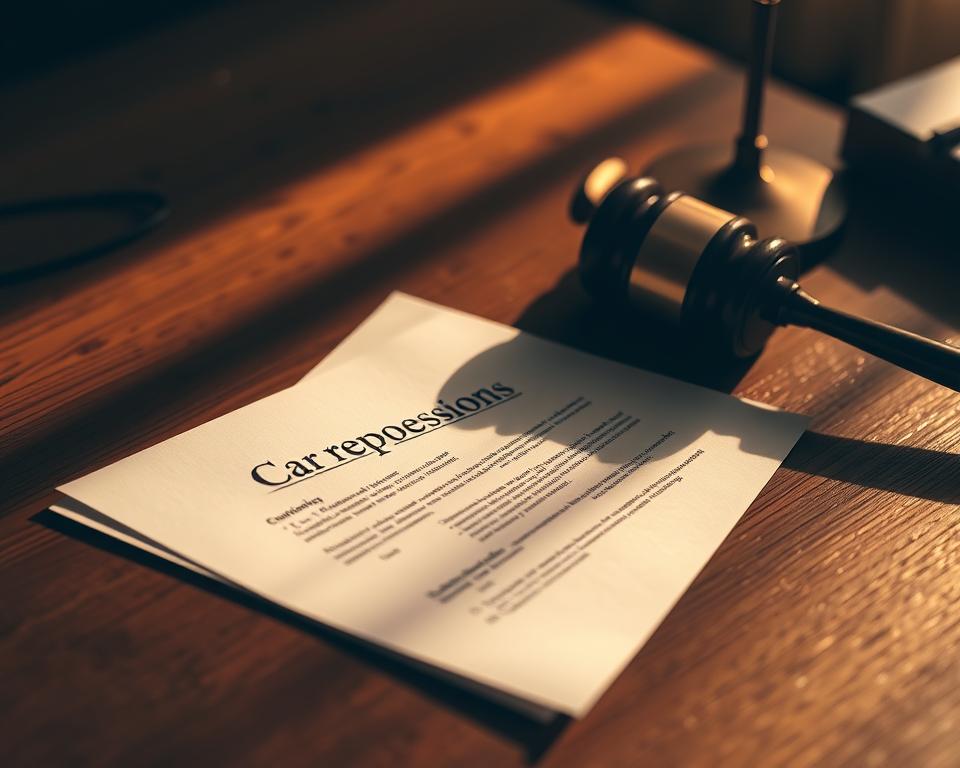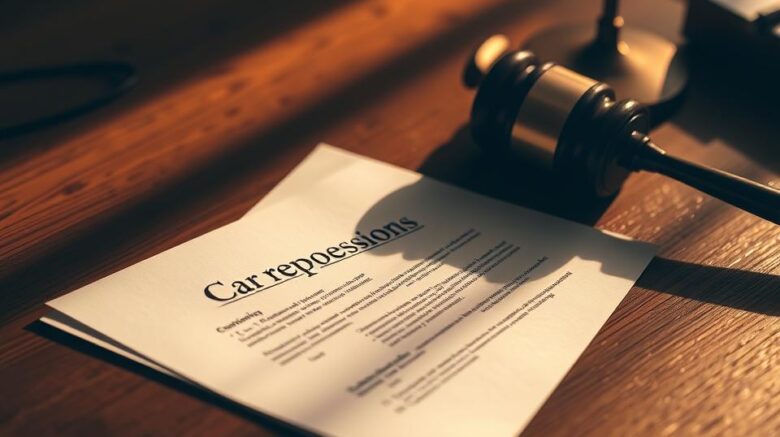Comprehending car repossession Statutes in California
Ever questioned regarding the method in which a lender reclaims a car in California? Navigating how to fight a repossession California can be complicated, particularly during economic strain. When financings are left outstanding, financiers may quickly move to repossess. Yet, many lack understanding of the precise entitlements and responsibilities stipulated within California’s repossession laws.
Upon nonpayment, California allows creditors to seize automobiles without prior notice. But, this doesn’t render debtors powerless. Grasping these regulations is essential to consumers desiring to defend their rights. The following text reviews major facets of California’s Civil Code and Commercial Code, outlining the process of repossession and borrower rights. Knowledge is imperative, particularly regarding your monetary security.
Overview regarding car repossession within the Golden State
Car repossession represents a significant issue for many in California facing economic challenges. Comprehending its basics to more effectively handle possible obstacles. Such a situation arises whenever a lender repossesses a automobile due to a breach with payment conditions. Such actions might significantly disrupt one’s employment opportunities or access necessary services.
What is car repossession?
Repossession takes place as financiers retrieve cars from borrowers in breach of their obligations. In California, missing even one due payment can prompt repossession. No grace period exists, urging debtors to stay vigilant about their commitments.
Frequent Causes of Repossession
Being aware of the causes of repossession plays a vital role in prevention. Common causes include:
- Missing scheduled payments
- Failing to maintain required insurance coverage
- Violating specific clauses within the contract
In order to avoid repossession, proactive financial management and dialogue with creditors are imperative. Such steps can help consumers retain their cars and the advantages they grant.
Comprehending Laws on Repossession within California
The repossession regulations of California shield the interests of both lenders and borrowers. They provide a fair procedure in the course of car repossession events. Comprehending the key legal details in repossession supports consumers. It clarifies their entitlements unambiguously.

Fundamental Legal Elements
Within these statutes are contained vital provisions. Lenders must follow the Automobile Sales Finance Act. This act delineates the notice obligations pertaining to borrowers. A Notice of Seizure is mandatory post-repossession. It provides details on the title of the vehicle and the involved repossession agency.
Moreover, all repossession agents are required to be licensed. This enables consumers to inquire about the credentials of the agent. These requirements greatly enhance buyer safeguards as stipulated by the law.
Rights of Borrowers
Debtors are afforded specific rights that reinforce their security during repossession. They are entitled to sufficient advance notice. Grasping the process steps constitutes their entitlement. They should also be aware that repossession agents cannot employ threats or force. The law bars any conduct that disturbs the peace during the process.
These precautions affirm that personal dignity and safety are upheld. This is essential in what may be a tumultuous time.
The Car Repossession Process in California
The process of repossession in California begins upon missed payments or insurance lapses. Knowing the steps assists consumers in managing this difficult predicament –repossession attorney. Subsequent sections detail the procedure and the events following repossession.
Procedural Steps Before Repossession
In the event of a loan default by a debtor, the lender takes note. There is no advance warning before repossession, because no such requirement exists in the Golden State. The following outlines the phases:
- Missed payments set off the default.
- Even though it is not compulsory, the lender may attempt to reach out to the debtor.
- Subsequently, agents execute an unanticipated retrieval of the vehicle.
Post-Repossession Procedures
A written notice is delivered to the consumer within 48 hours after repossession. This document includes essential details:
- Details regarding the lender and the involved agency
- An inventory of personal items contained in the car
A period of 60 days is provided to reclaim personal effects. Failure to do so permits the agency to dispose of them. Borrowers have legal avenues to challenge a repossession, based on their circumstances.
Combating Repossession within California
Facing car repossession in California can be intimidating. Nonetheless, knowing your alternatives greatly strengthens your position. By acting proactively, beneficial resolutions may be secured. Understanding your legal options is essential in these events.
Exploring Your Legal Alternatives
To combat a repossession in California, recognizing various legal strategies is key. Options for borrowers include:
- Engaging in direct negotiation with lenders to secure a workable payment schedule
- Revising repayment schedules in accordance with their monetary circumstances
- Getting legal help if the repossession violates their rights
Early communication with lenders enhances the likelihood of a mutually acceptable arrangement. Make sure all agreements are documented to avoid future misunderstandings.
Bargaining with Lenders
Engaging in dialogue with lenders is fundamental when managing repossession cases. When repossession has already taken place, contacting lenders quickly might help in getting the vehicle back. Negotiation strategies include:
- Asking for a temporary halt on payments
- Exploring the option of voluntarily surrendering the car to ease monetary burdens
- Investigating different monetary strategies for unresolved payments
Maintaining continuous dialogue with lenders fosters confidence, which can lead to better agreements. This mutual trust can facilitate arrangements that assist debtors in effectively managing their monetary difficulties.
Preventive Measures to Avoid Repossession
To safeguard your car and avoid monetary troubles, knowing preventive measures is key. Within California, folks have several legal tactics to dodge repossession. These include talking openly with lenders and ensuring your insurance remains valid and robust.
Sustaining Adequate Insurance Coverage
Retaining continuous insurance coverage is crucial for avoiding repossession issues. A robust auto insurance policy both safeguards against incidents and fulfills lender prerequisites. If your insurance slips, you’re breaching your finance agreement, risking repossession. Regularly reviewing and updating your policy is advisable to remain compliant and at ease.
Dialogue with Financiers
Interacting with financiers plays a key role in deterring car repossession. Opening up about your cash flow troubles can unveil some helpful alternatives. Lenders may recalibrate your installment timeline or grant a temporary reprieve when funds are scarce. Early communication lays the groundwork for trust and helps avert unexpected repossession scenarios.
The Final Word
Understanding the laws governing car repossession in the Golden State is critical for consumers wishing to protect their interests and properties. In the event of repossession, the ensuing procedures can transpire quickly. This speed can restrict the chance for a timely and effective reaction. Familiarity with these regulations empowers consumers to take decisive measures.
The following overview elucidates the principal aspects of car repossession regulations in the Golden State. It guarantees that consumers are aware of their responsibilities and entitlements during repossession. Knowing your legal options can help navigate through the potential complexities of repossession. It makes it simpler to engage in negotiations with creditors and explore solutions that lead to positive outcomes.
By acting knowledgeably and maintaining communication with lenders, borrowers can reduce the risks tied to car repossession. In essence, being informed about your rights under California’s repossession laws plays a crucial role. It contributes to preserving monetary stability and ensuring peace of mind in turbulent moments.
Frequently Asked Questions
What happens if I miss a payment on my car loan in California?
Failing to make a payment in the Golden State can rapidly trigger car repossession. Financiers can move straight to repossession given the absence of a grace period.
What are my rights in the repossession process?
Post-repossession, a Notice of Seizure will be provided to you. It specifies ownership particulars along with details of the involved agency. Repossession agents are required to be licensed. It is within your rights to request proof of their qualifications.
How do I stop car repossession in California?
Timely payments for both loans and insurance are crucial to avert repossession. Regularly renew your insurance. Sustain communication with your lender in times of financial stress to negotiate alternative payment options.
How should I respond if my car is repossessed?
Should your car be repossessed, remain in contact with your creditor to explore options such as contract reinstatement. Obtain attorney assistance if you feel your legal rights have been compromised.
Are there legal ways to fight a repossession in California?
Yes, direct negotiations with creditors to adjust payment terms are possible. Additionally, you can take legal action if repossession seems improper or violates state statutes.
Which factors most frequently lead to car repossession?
Failing to pay loans, lapses in insurance, and violations of financing agreements are common causes of repossession. Awareness of these factors is crucial to prevention.
What is the timeframe for reclaiming a car post-repossession?
There is a 60-day period following repossession during which you may recover your car. Beyond this period, the agency can liquidate your car and clear out any belongings.
Are creditors allowed to take back my car without warning?
Indeed, under certain legal conditions, the state authorizes repossession without prior notice.
What should I do if I am having trouble making my car payments?
Should you encounter challenges with making payments, get in touch with your lender right away. Consider alternatives such as payment deferment or revising your repayment plan to prevent repossession.
